|
Tuesday, 1 March
|
|
Water
|

The session on water was chaired by Vice-Chair Khaled Elbakly of
Egypt.
|

Claude Origer of Luxembourg, speaking for the EU, said local initiatives
should be housed within a national framework.
|
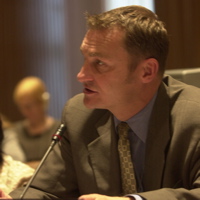
Gary Pringle of Canada stressed the need for an intergovernmental home
for water and sanitation issues.
|
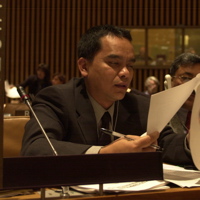
Indonesia identified the need to ensure that capacity-building
activities are culturally and locally acceptable.
|
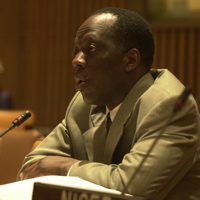
Nigeria discussed maintaining water supply infrastructure to prevent
leakage.
|
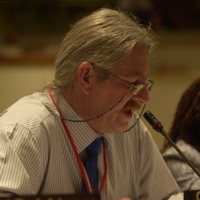
Alf Wills of South Africa noted that water should be considered a
national asset.
|
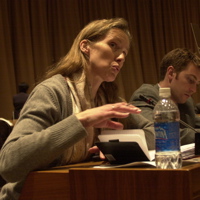
Norway urged tailoring IWRM approaches to country circumstances.
|
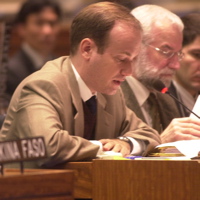
Raphael Azeredo of Brazil recommended user-pays and polluter-pays
systems for water quality.
|
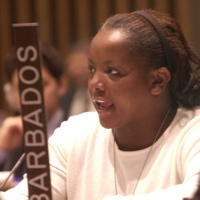
Barbados advocated applying "reduce, reuse, recycle" to water.
|

Madagascar, speaking for the African Group, urged support for
South-South cooperation and the sharing of best practices.
|
|
Sanitation
|
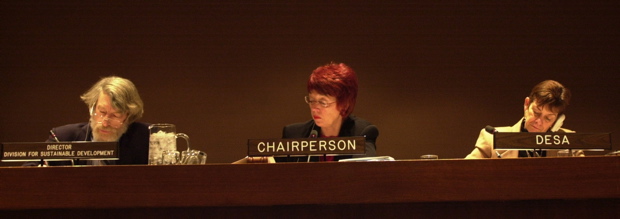
The session on sanitation was chaired by Vice-Chair Dagmara Berbalk of
Germany.
|
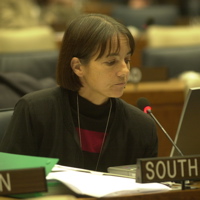
Judy Beaumont of South Africa underscored the importance of a successful
CSD-13 to establish a firm foundation for future policy sessions.
|

Counselor Mootaz Ahmadein Khalil of Egypt identified the need to provide
information on low-cost and locally-appropriate technologies.
|
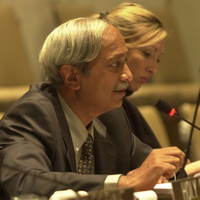
Dinesh Mehta of UN-HABITAT urged developing demand driven strategies for
sanitation.
|
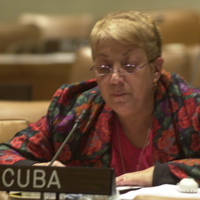
Cuba indentified the need to protect watersheds, groundwater resources
and near-shore ecosystems.
|
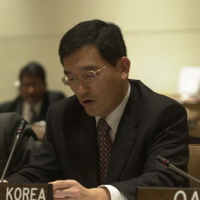
Republic of Korea addressed the need to ensure the role of national
governments, while decentralizing responsibilities to local authorities.
|

Iran urged use of mass media, grassroots and civil society organizations
and city councils to create awareness and reflect on the performance of
service providers.
|
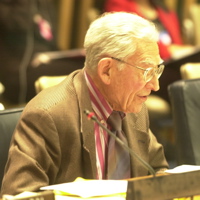
William Stibravy of the International Chamber of Commerce spoke on behalf
of business.
|
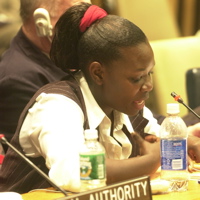
Rosemary Rop of the African Civil Society Network on Water spoke for NGOs,
identifying the need to address trade rules and ensure more and better
aid.
|
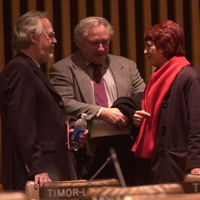
Vice Chair Dagmara Berbalk of Germany conferred with participants before the
afternoon session.
|
|
Plenary: Experts Panel on Human Settlements
|

Introduced by Vice-Chair Chin of the Republic of Korea, Maria Antonia Trujillo,
Spain's minister of Housing, presents lessons learned from last year's
Second World Urban Forum in Barcelona.
|
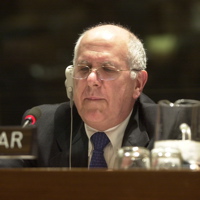
Professor Elliott Sclar of Columbia University discussed the recently
completed report from Millennium Project Task Force 8: Improving the
Lives of Slum Dwellers.
|
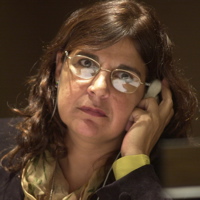
Silvia Andere of Brazil discussed Brazil's 12-year experience with
improving living conditions in the precarious human settlements of
Belo Horizonte, Brazil.
|

Sylvia Martinez, senior advisor with the United States' Federal Housing
Finance Board, shared options for housing finance strategies aimed at
the poor.
|
|
Partnership Activities
|
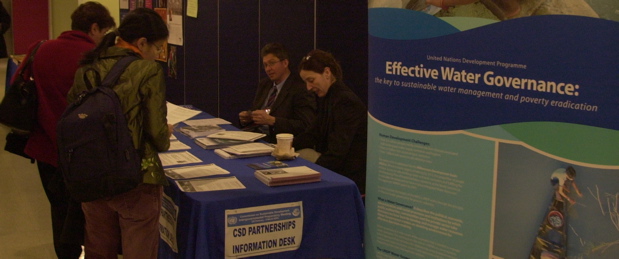
The CSD Partnerships information desk provided a selection of
informative handouts on sustainable water management to attendees
of the IPM.
|
|
Side Events
|

|
Two side events took place during the midday lunch break.
Sweden, the Stockholm International Water Institute and the
International Water Management Institute presented a side event
(left) chaired by Viveka Bohn, on the importance of water in
global food security.
The UN NGO Committee on Sustainable Development presented a meeting
(right) with Ian Kinniburgh of the Committee for Development Policy, who
spoke on the key economic issues facing UN development programs,
such as aid, debt, trade and innovative sources of financing.
|

|
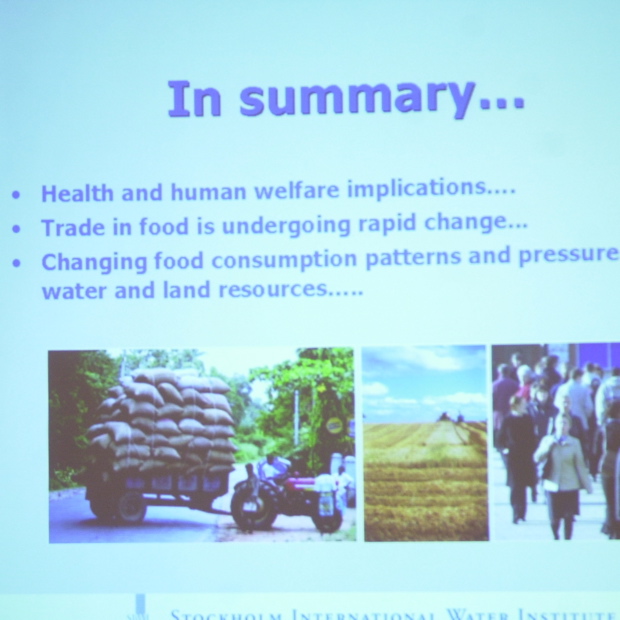
|
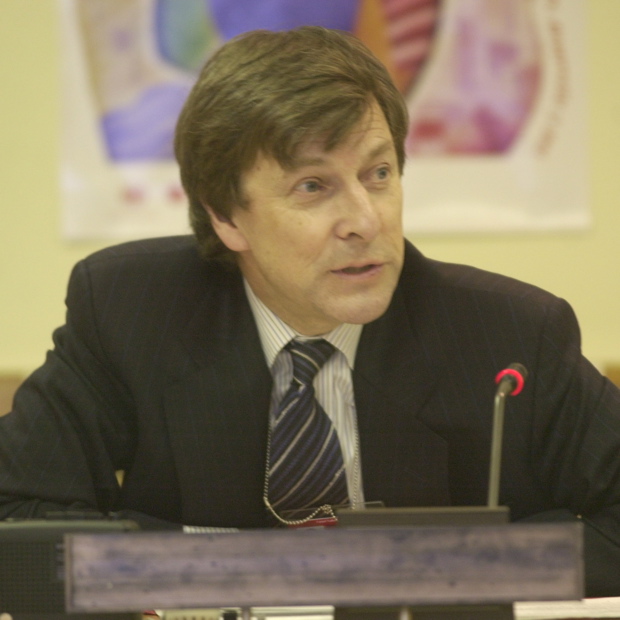
|
|
Around the IPM
|
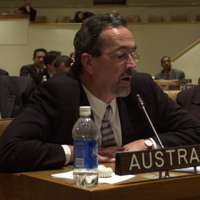
Kevin Keeffe of Australia
|
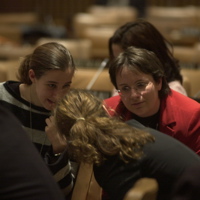
Members of the Austrian delegation
|
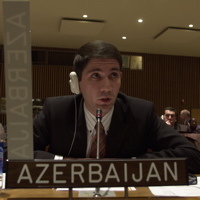
Anar Karimov of Azerbaijan
|

